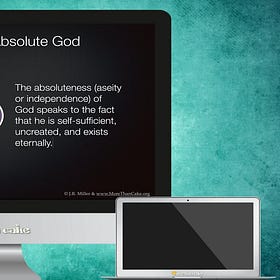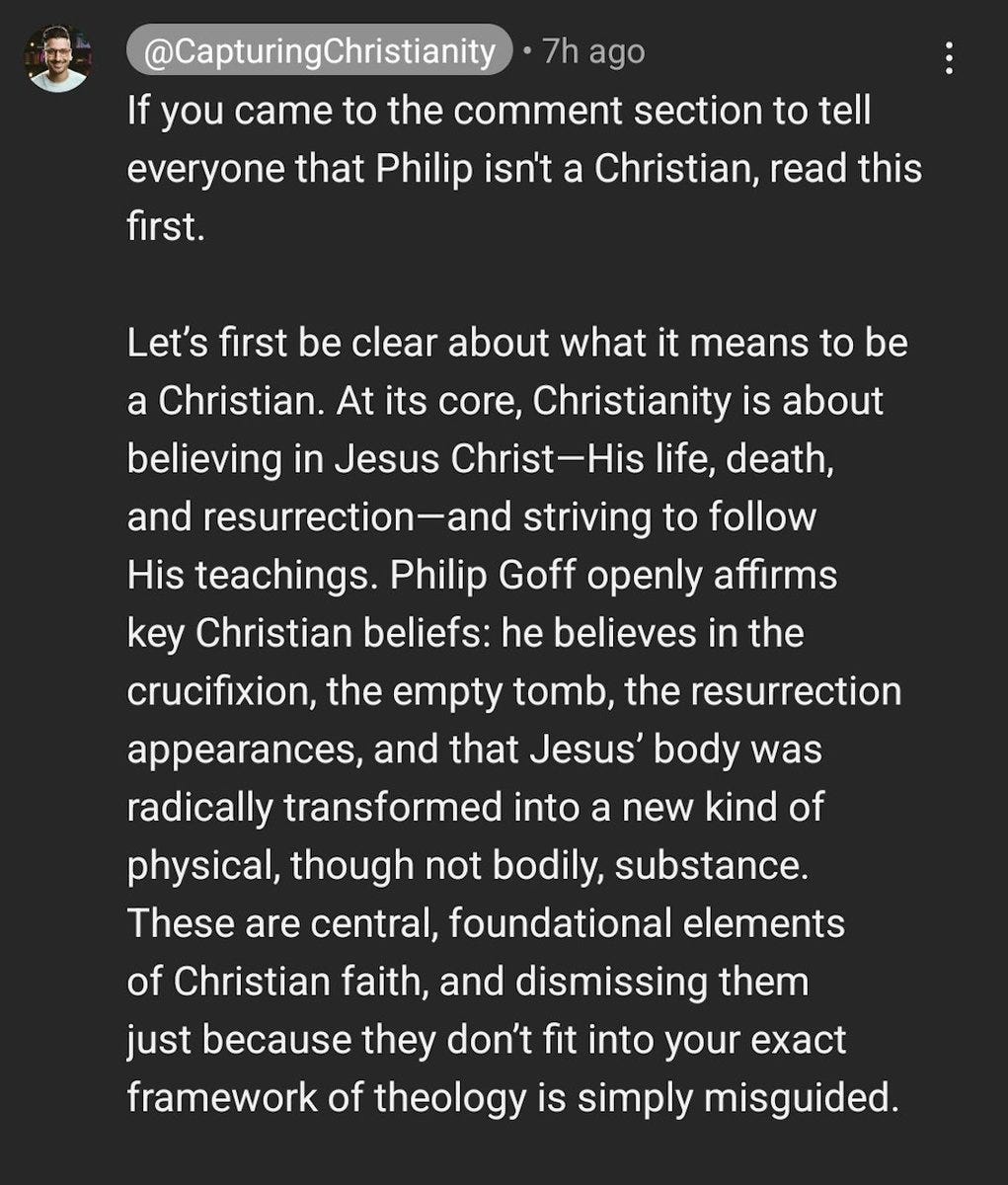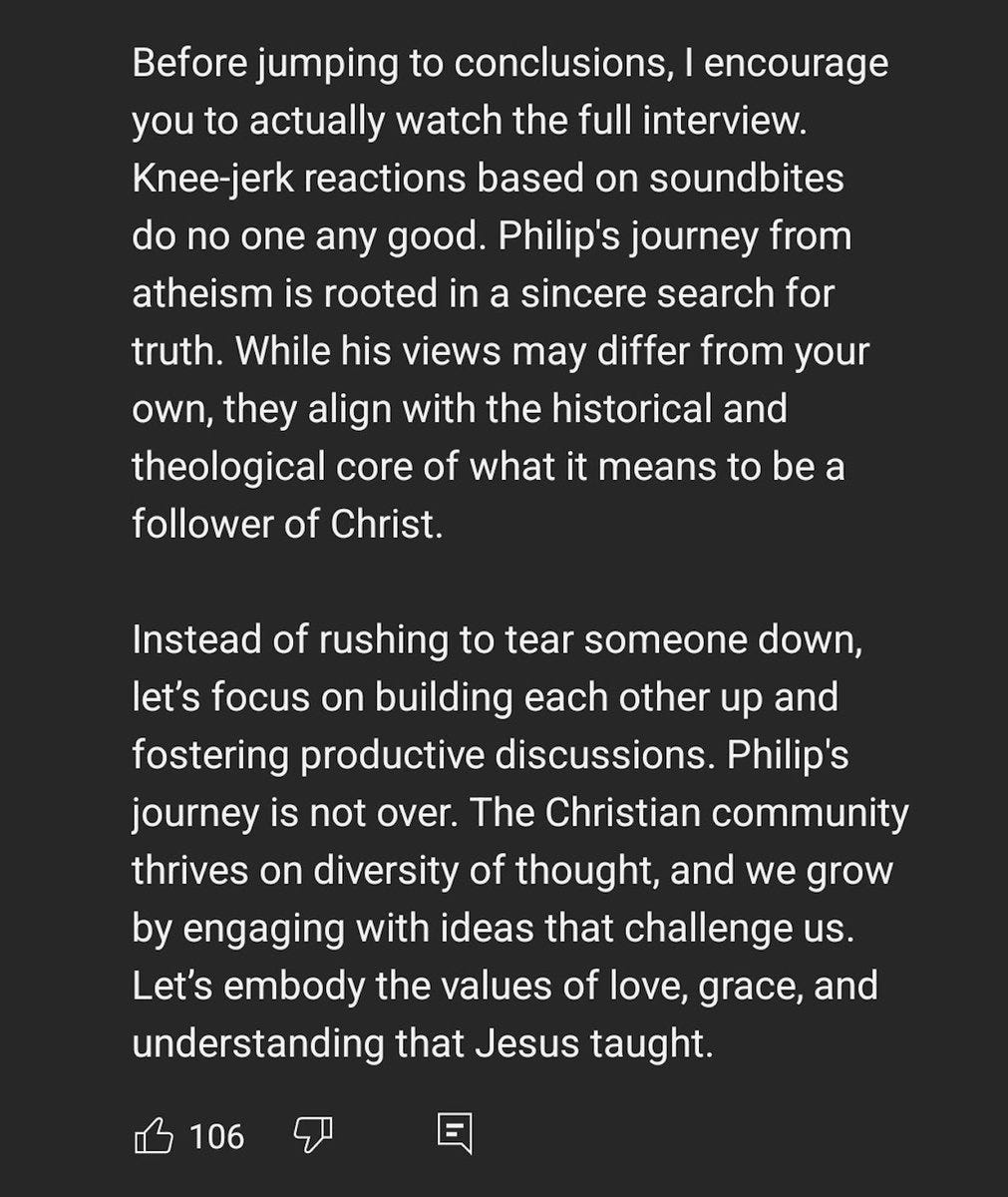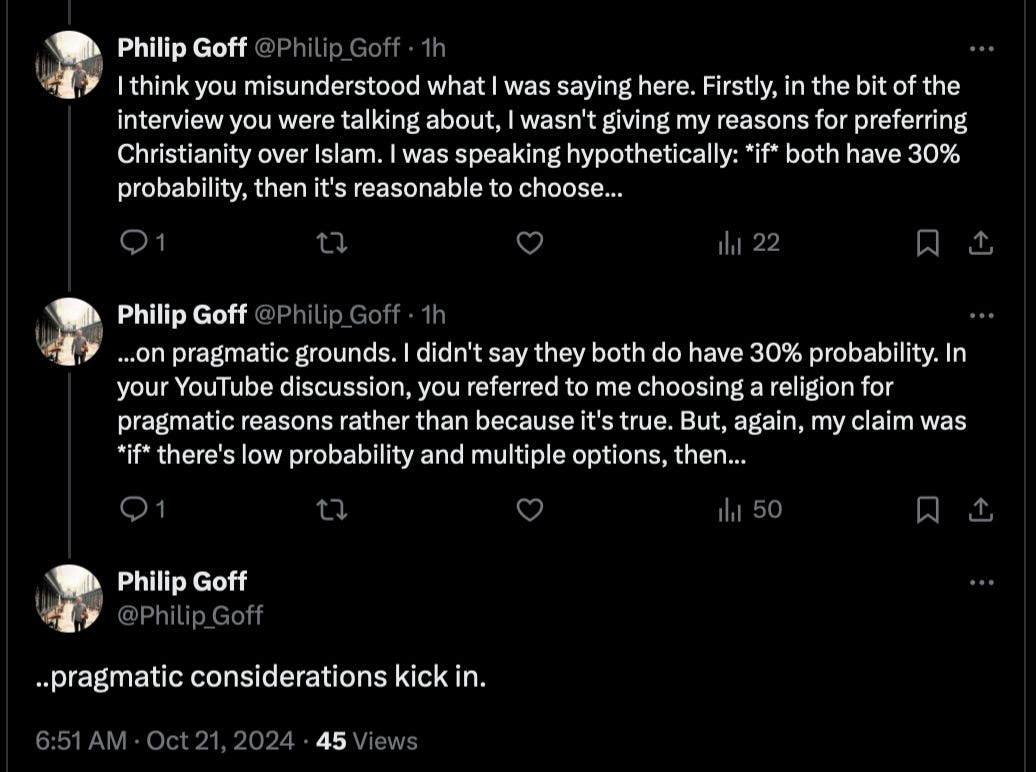Dr. Ward Crocker joins Dr. Miller to discuss a YouTube event hosted by Capturing Christianity in which apologist Cameron Bertuzzi interviews atheist philosopher Philip Goff about his self-professed conversion to “heretical Christianity.” In his social media promotion on X, Betuzzi proclaimed, “Big news Philip Goff just announced his conversion to Christianity on our channel. He's been an atheist most of his life. In our interview, we discuss the specific arguments that brought him to faith.” But did Goff really become a Christian? Is the God of his faith the God of the Bible? If not, what does this tell us about Bertuzzi’s brand of apologetics?
“In terms of the case for atheism, I remain as convinced as ever that the suffering we find in the universe is powerful evidence against the existence of a loving and all-powerful God. But I’ve also come to think there are powerful considerations in support of something Godish.” — Philip Goff, My leap across the chasm
Related Content
During our discussion, it occurred to me that Goff’s belief in a goodish being falls in line with Hobbes’ philosophy of God. We pick up that point at about minute 21. I’ve asked Goff for his thoughts but have not received a response.
Ep 15: The Leviathan of Christian Atheism
If we as Christians hope to Cultivate the Culture and sow the seed of the Gospel of Jesus Christ, then we must understand the big ideas that have shaped the worldview of the people around us. Today, R. Scott Smith joins Joe and Leroy to explore how Thomas Hobbes'’ old ideas have shaped our political philosophy of power, leadership, and ethical narcissi…
Goff is also critical of what he calls the “omni” God in favor of his “goddish” God. In this video short I present the argument for the 5 Omnis of God.
Who is God?
Who is God? For Christians, the Bible gives us a clear answer about the nature of God. God is Personal. God is Relational. God is Holy. And God is Absolute. In this video Dr. Miller looks at the five Omnis of our Absolute God, his omnipotence, his omnipresence, his omniscience, his omnisapience, and his omnibenevolence which together assure us that YHWH…
Early Reactions on X
Interestingly, Goff responded to the original live broadcast and my questions on X, but Bartuzzi has chosen to ignore my questions. This is only a small but representative sample
Despite Goff’s redefinition of key terms like “incarnation” and “resurrection” and even his redefinition of God himself, Bertuzzi is convinced none of this changes the essences of the Gospel and therefore Goff’s theology is Christian.
Responses to our Live Broadcast
Philip Goff offered quite a few responses to our live broadcast. Goff, along with a lot of his followers, was not a fan. Out of the several dozen responses, I noticed a few patterns worth pointing out.
1. “US Christians are Ignorant”
Goff’s first response was sadly an ad hominem argument that was echoed by a lot of others. This flawed argument runs as follows:
Premise 1: Christians in the US are ignorant of different views of Christianity.
Premise 2: Miller and Crocker are Christians in the US.
Conclusion: Therefore, Miller and Crocker are ignorant of different views of Christianity.
Notice how the supporters of Goff’s position end in promoting pluralism.
2. “US Christianity is a Free-for-all” & '“US Christianity is too limited.”
These sort of nonsensical tropes are common among Goff’s supporters. The law of non-contradiction has sadly fallen victim to internet hot-takes where critics of our podcast believe we are both too open and too restrictive in our definition of Christianity.
3. “But if you’re right, then other people are wrong, therefore, you must be wrong.”
Goff’s self-refuting logic is odd for a philosopher of his reputation. He has no problem saying my brand of Christianity is wrong but when I suggest his “brand” is wrong, then it counts against the truthfulness of my view.
Even more, our podcast is about his theology as expressed in his interview on Capturing Christianity. But rather than address the substance of our response, he asserts that our ideas are rooted in ignorance simply because the existence of Eastern Orthodoxy which somehow counts against the truth value of our biblical claims. But I suppose it makes sense that since Goff rejects the Bible as a source of truth then he’s left with no other basis for his reasoning than appeals to diverse theological opinions.
Setting aside his attempt to have me condemn all adherents to EO (which include many folks in my family including my Grandmother) this kind of response is no doubt fueled by Goff’s pluralistic leanings which Ward and I discuss at the end of our podcast.
4. Goff’s Self-Affirming “Goddish” Pragmatism.
While Goff denies he is a pragmatist. I would argue that I never said he was. I do, however, suggest his reasoning was “pragmatic-ish.” It seems reasonable that if Goff gets to nuance his theology with vague and confused labels such as “goddish.” then I should be granted latitude to nuance my summary of his views with my own set of “ish” labels.
In the end, I think my conclusion that Goff’s theology is “pragmatic-ish.” is accurate. Please check out the podcast. listen to Goff’s own words and decide for yourself.
5. “You questions are in bad-faith!”
At the comments rolled in, I attempted to simplify all the philosophical debate and go back to the basics. I wanted to know why Goff values the label Christian and what it means to him to follow Jesus. I got this non-answer.
Goff’s overall response across multiple postswas very dismissive of me and my version of Christianity while his version (of course) is the taken as the most reasonable brand of Christianity. I had a lengthy response to Goff where I took him to task for the way he tried to frame our exchange. My post was too big to screen grab, so pasted the text below.
That is a well crafted non-answer which calls into question my motives for asking these questions. Rather than answering in good faith, you attack me as insincere. You brand me with the label "evangelical" not based on any fact. but based solely on your own cultural bias. A label used not once in our podcast. A label which has no dialogic value except it allows you to easily dismiss my integrity as an honest questioner.
So for those reading along let me clarify. I do not use the label evangelical for myself. I've actually written against the use of it for two decades as I find it too vague to be meaningful. Unlike Goff, I have a very diverse religious and educational background and his efforts in this and other posts along this thread to margarine me based on tropes rather than any substantial knowledge of my theology, education, or life experience is the problem.
I realize Dr. Goff that you've read a book and been a christian now for 5 minutes and so, as the true expert on Christianity, you feel empowered to dismiss me for my backwards American faith which is only informed by 3 masters degrees, 2 doctorates, several published works, global missions work, and 40 years of life following Jesus. I'd like to counter your ill-conceived misanthropic narrative with the suggestion that maybe, just maybe, it's your lack of experience with global Christianity and your limited education in historic Christianity that has led you to mis-read my intentions and offer this non-answer.
All that said, I know I'll get some angry responses to this post and be called names far worse than "evangelical" but in truth I'm still genuinely interested in your answer to my 2 questions. My questions are honest and reasonable.
I'm asking something that @CapturingChrist sort of asked at the end, but in a rather indirect way. I'm asking the kinds of questions that Christians over the centuries have found meaningful. I'm asking questions that I've been asked by Christians in Mexico, Romania. Nigeria, and the former Soviet Union, and even in my short time in the UK.
No I'm simply asking you, as a man (not a philosopher or theologian or academic); 1) Why does using the label Christian matter to you? 2) What does it mean for you to be a follower of our Lord and savior Jesus Christ?
Goff did respond (which I did not expect) and he was very gracious. He did try to both-sides the issue but it was not a big deal and overall I appreciated his forthright reply to my questions.
And here was my reply to Goff.
The X threads go on, but I’ll leave it here for now.



































Share this post